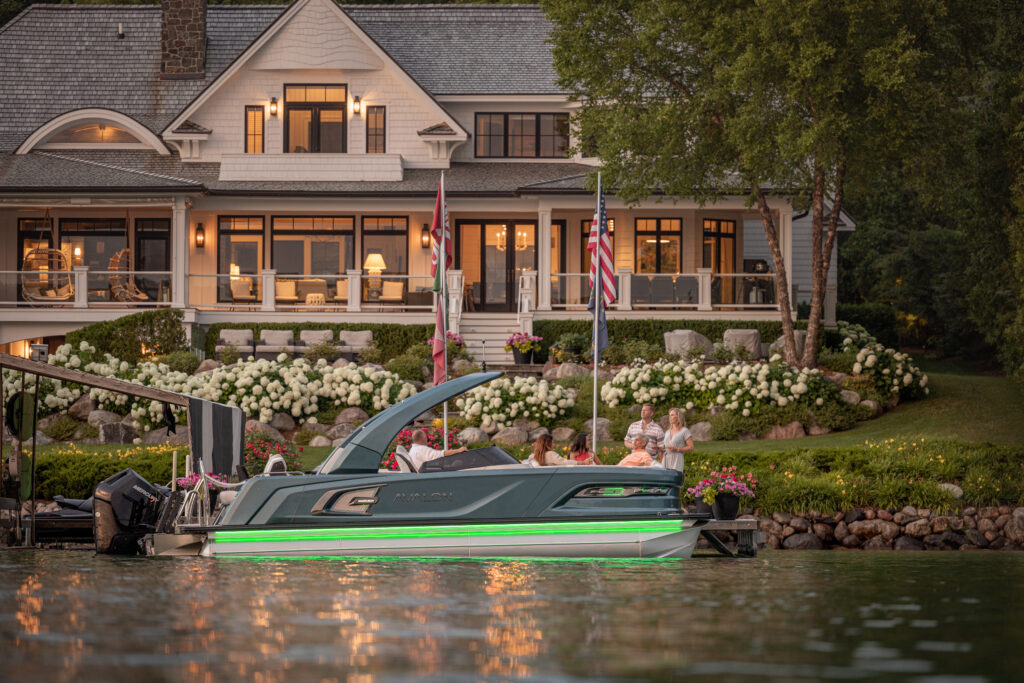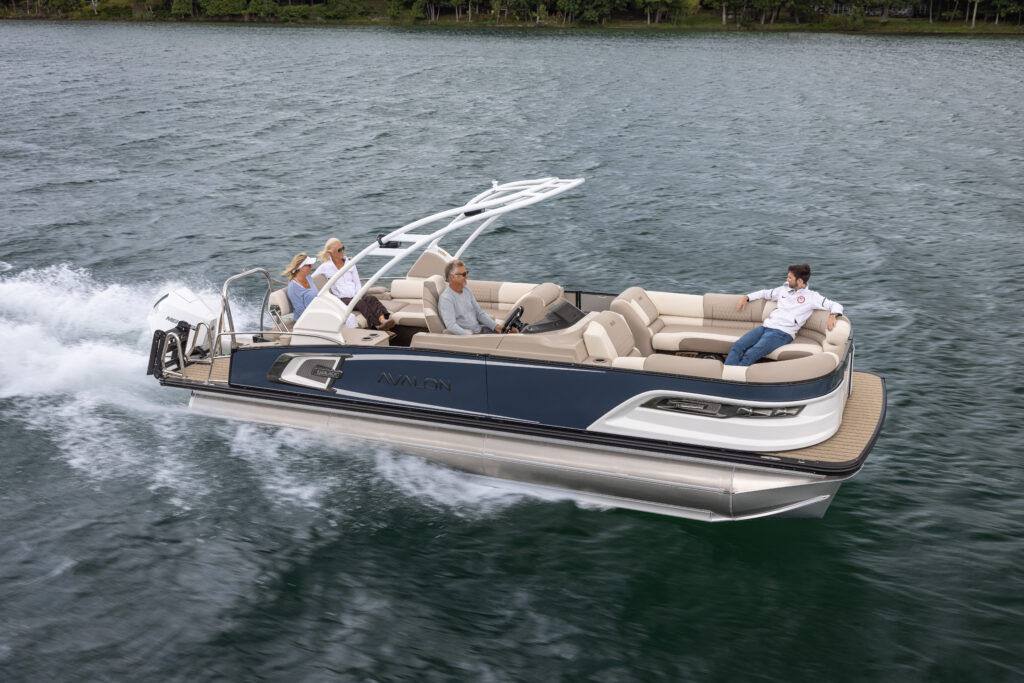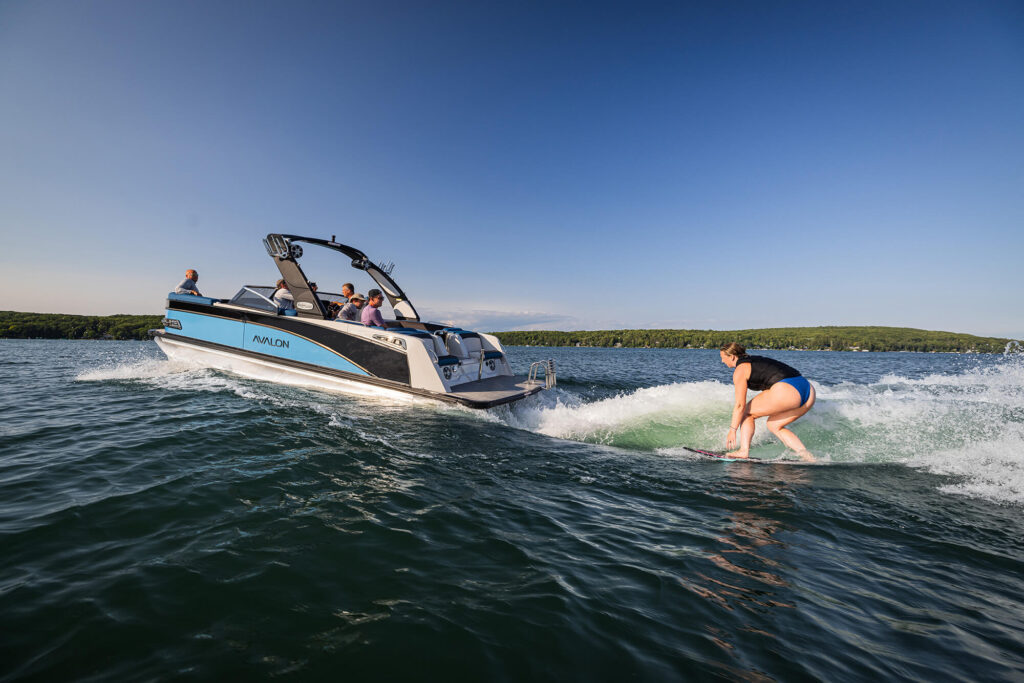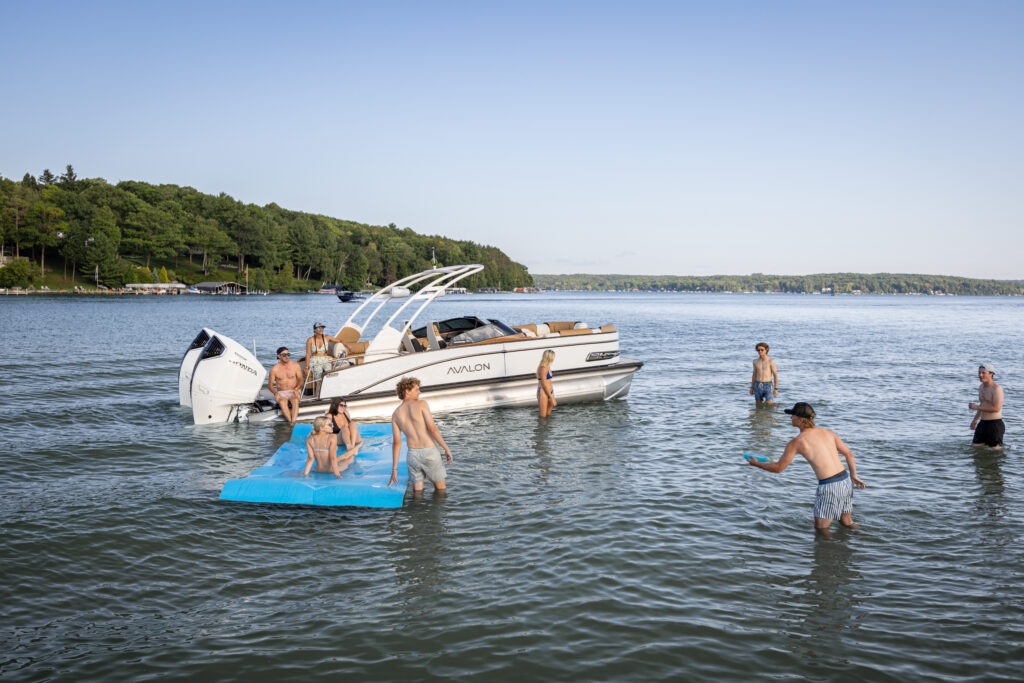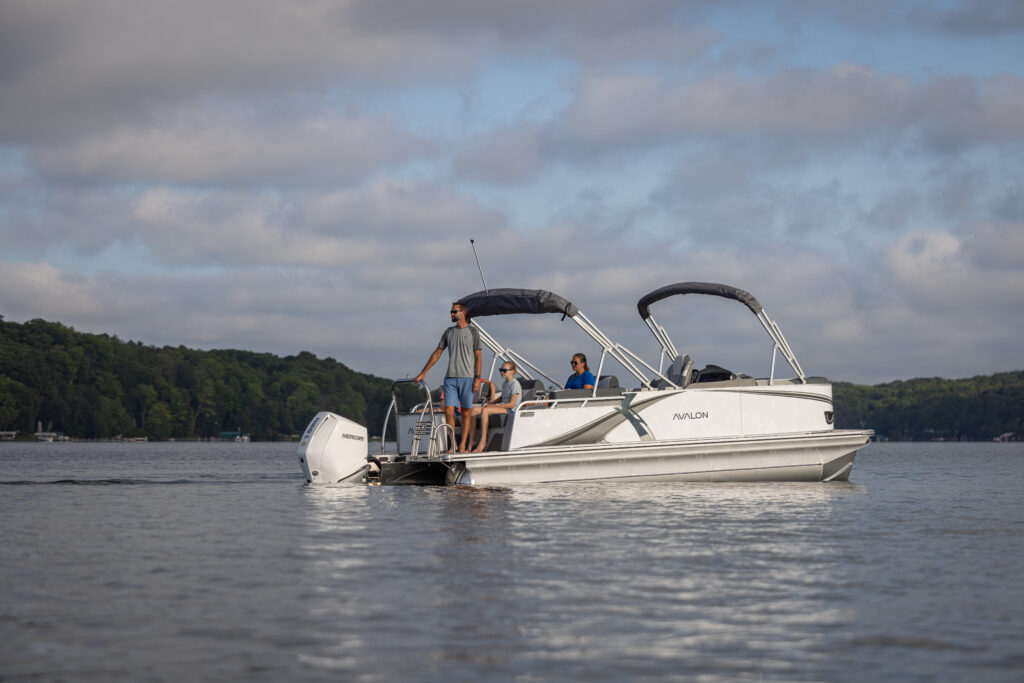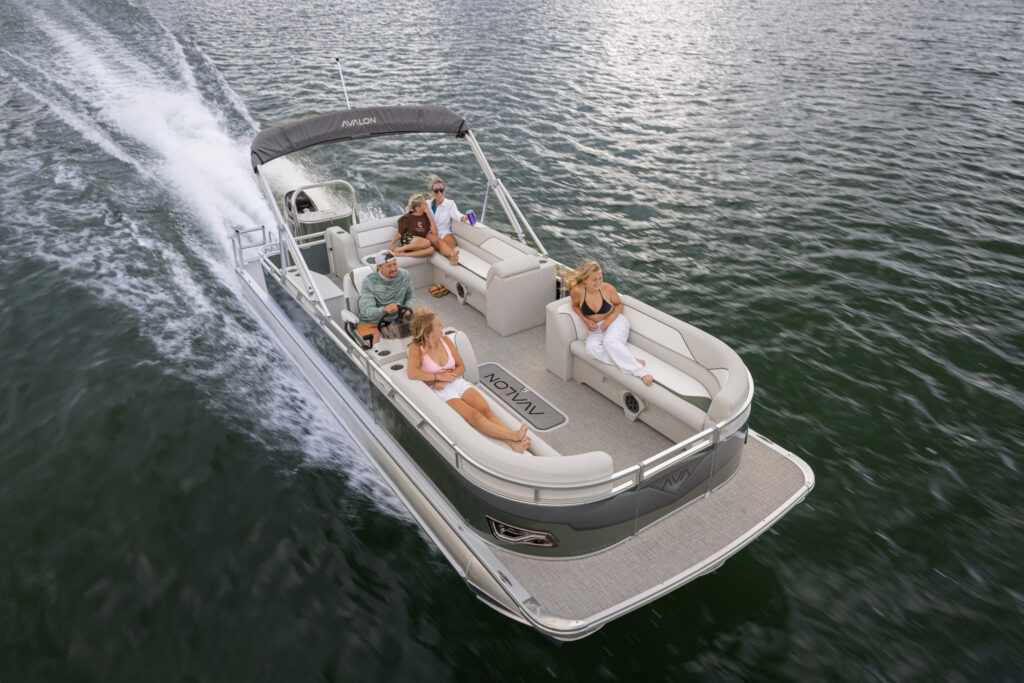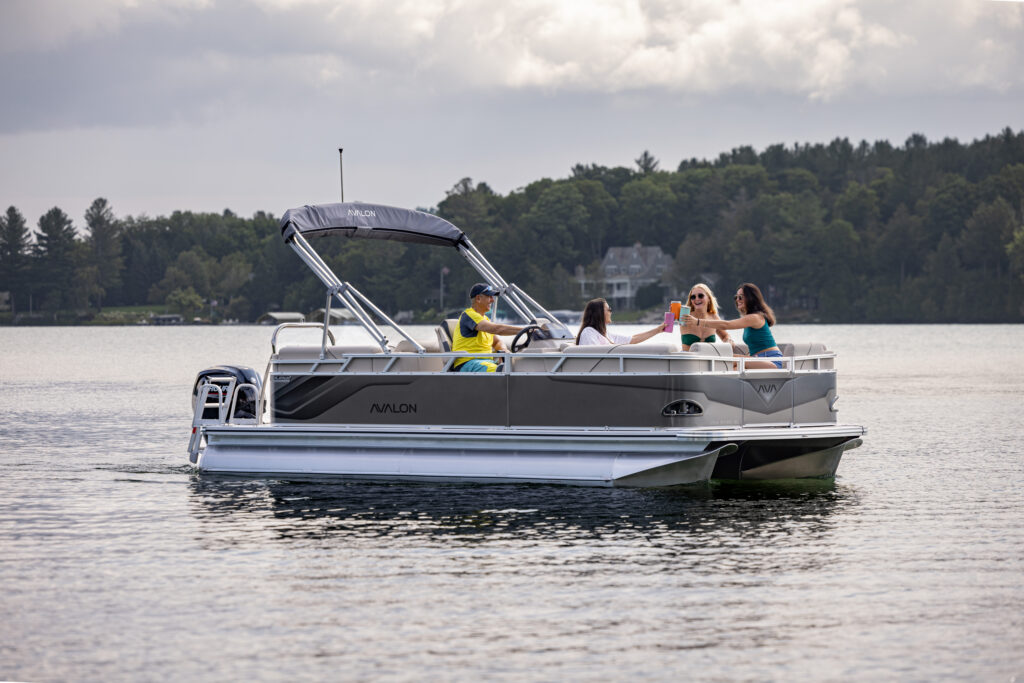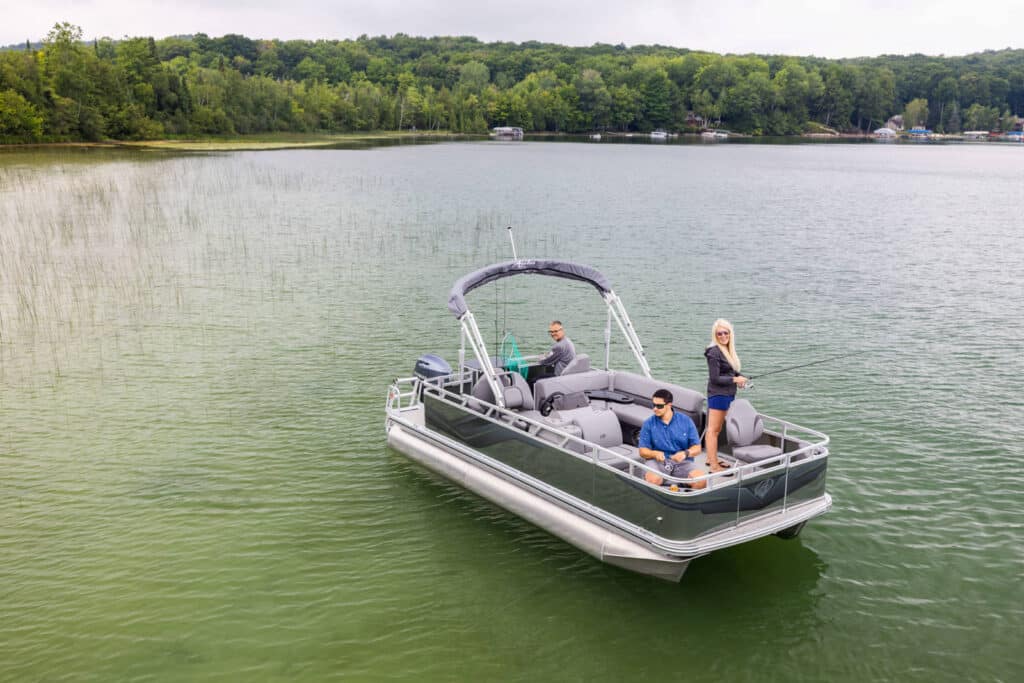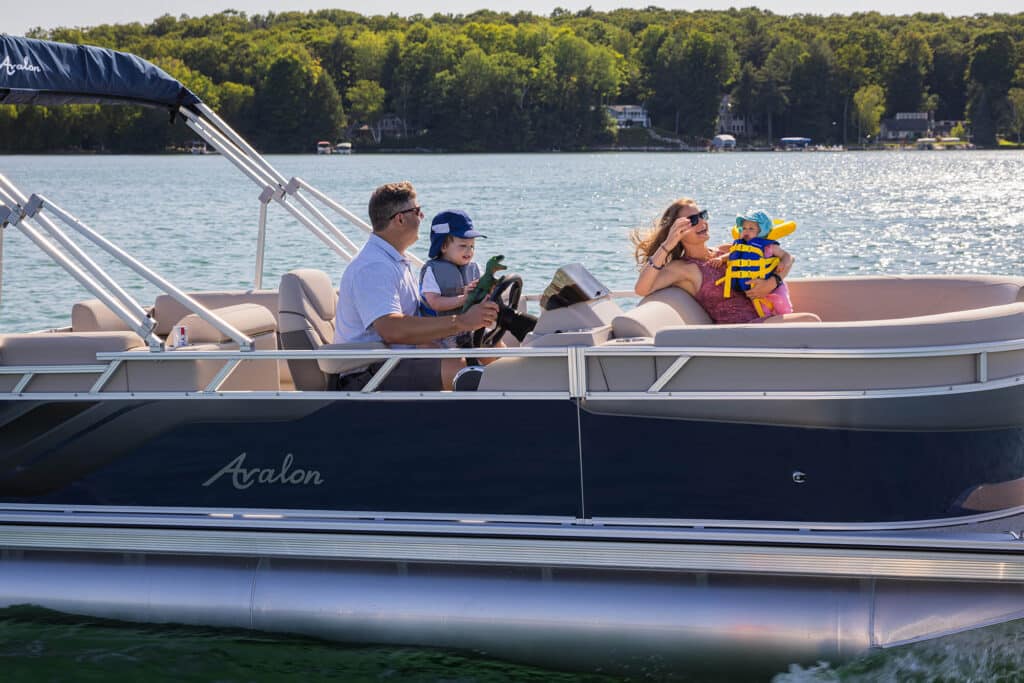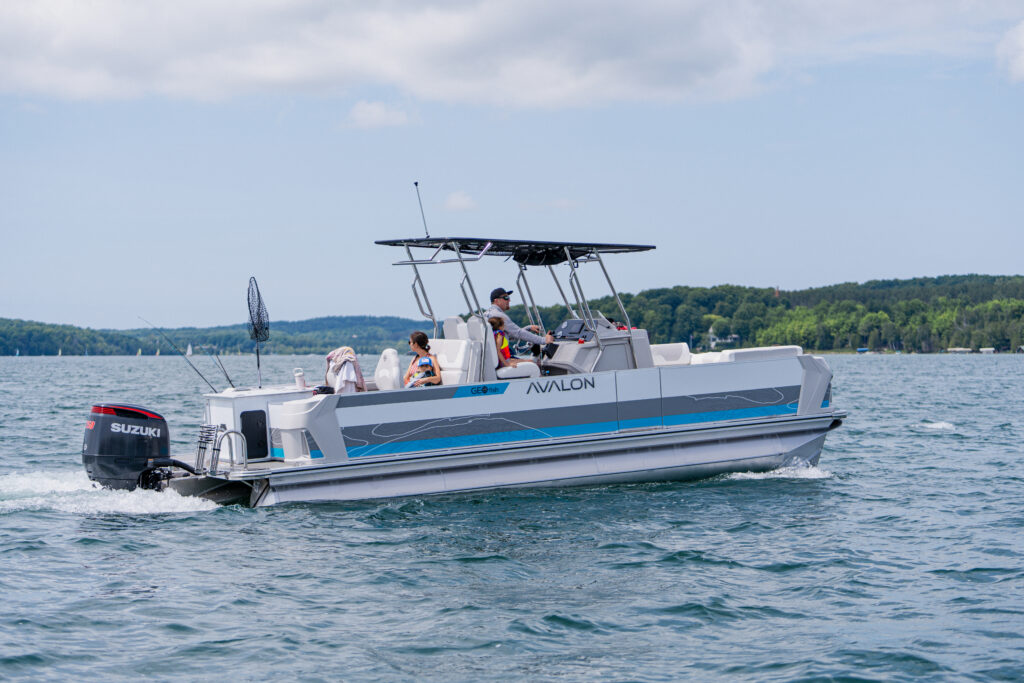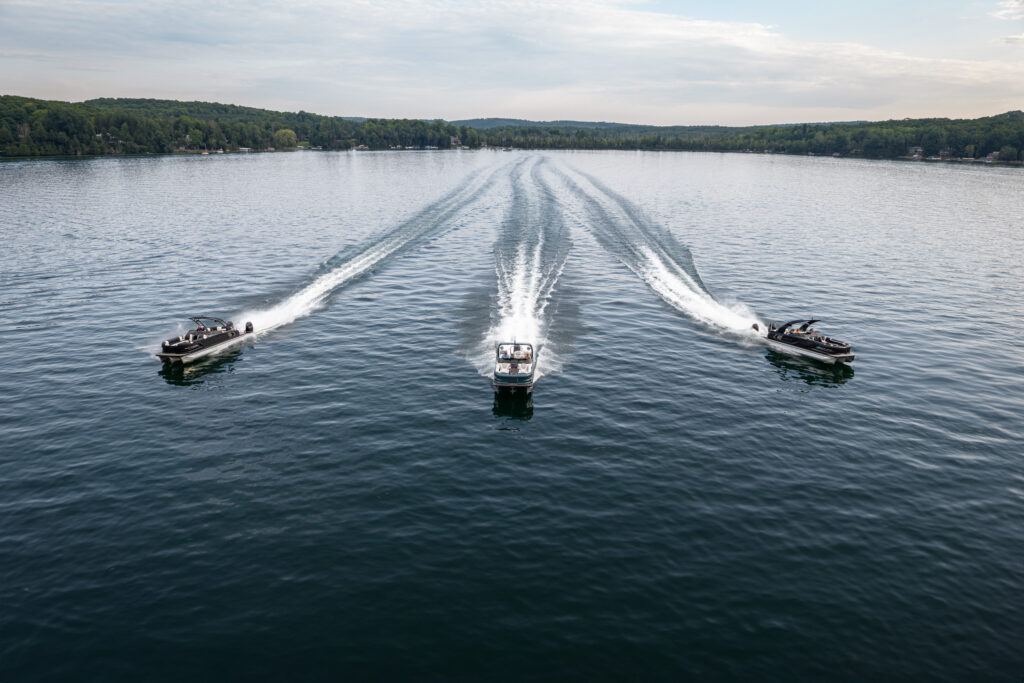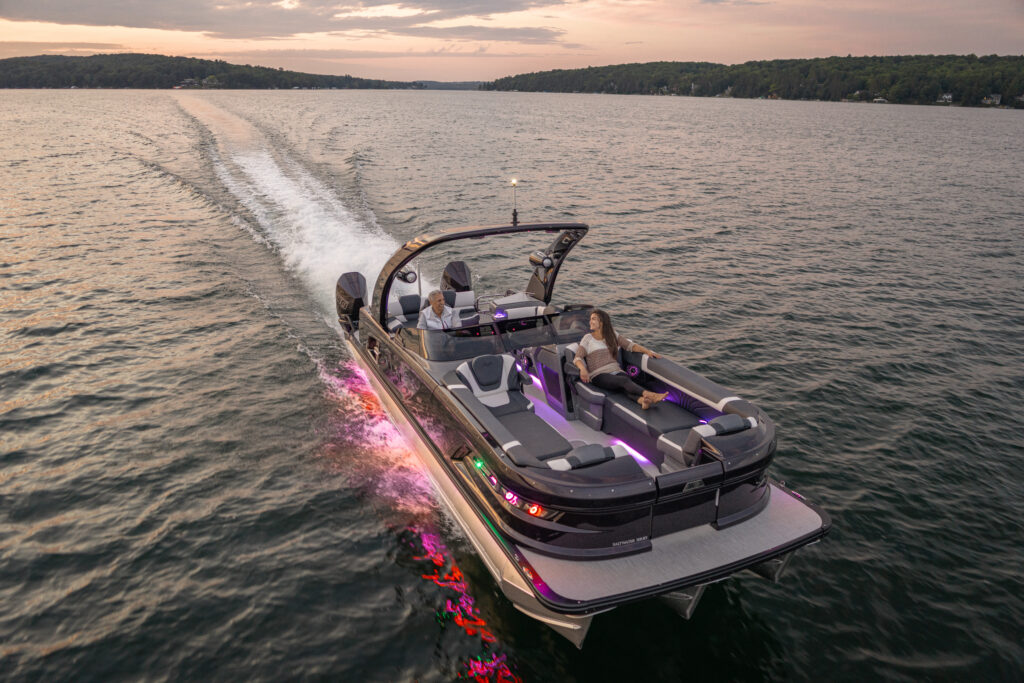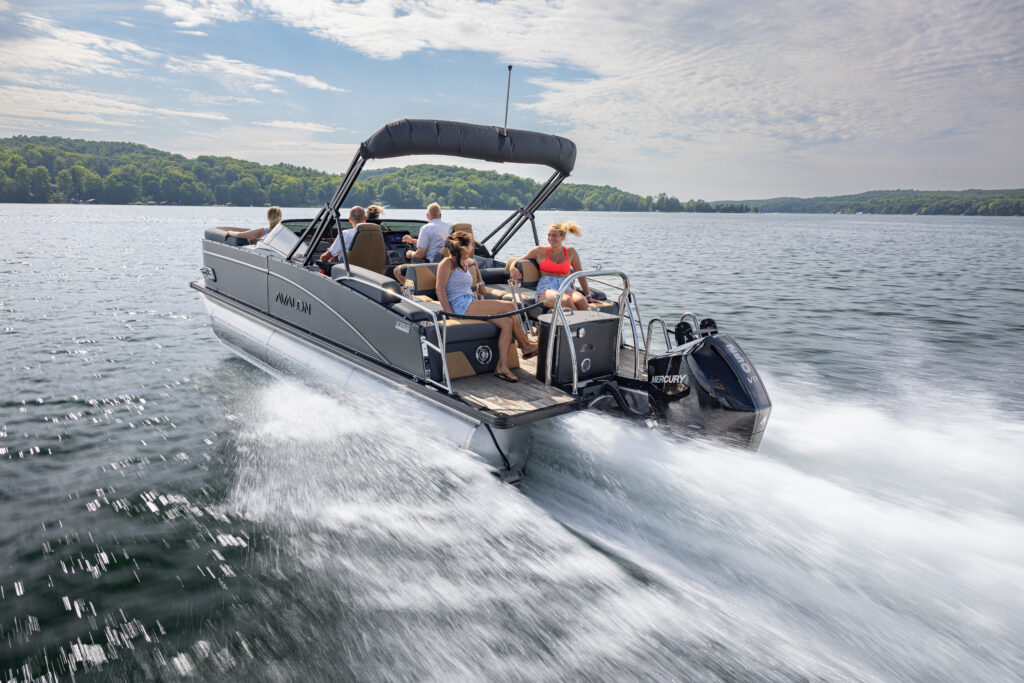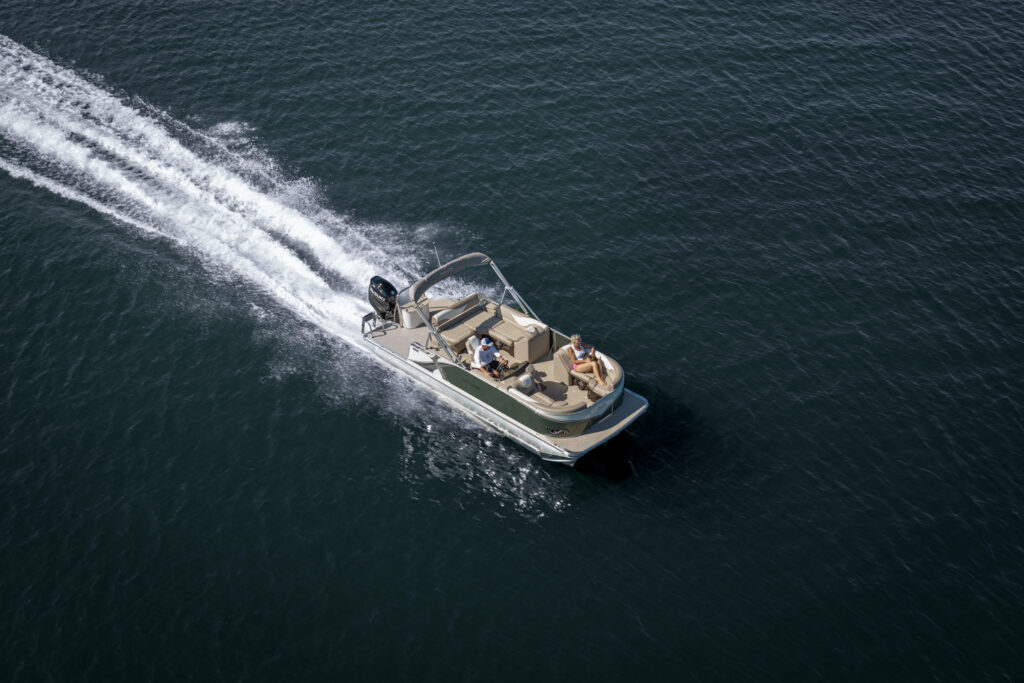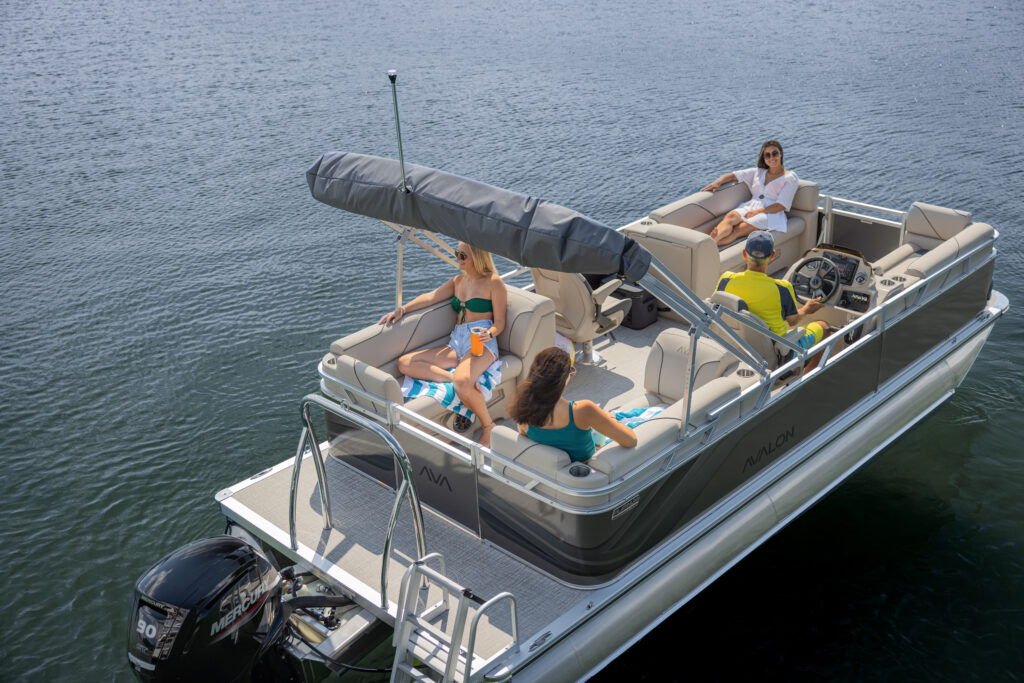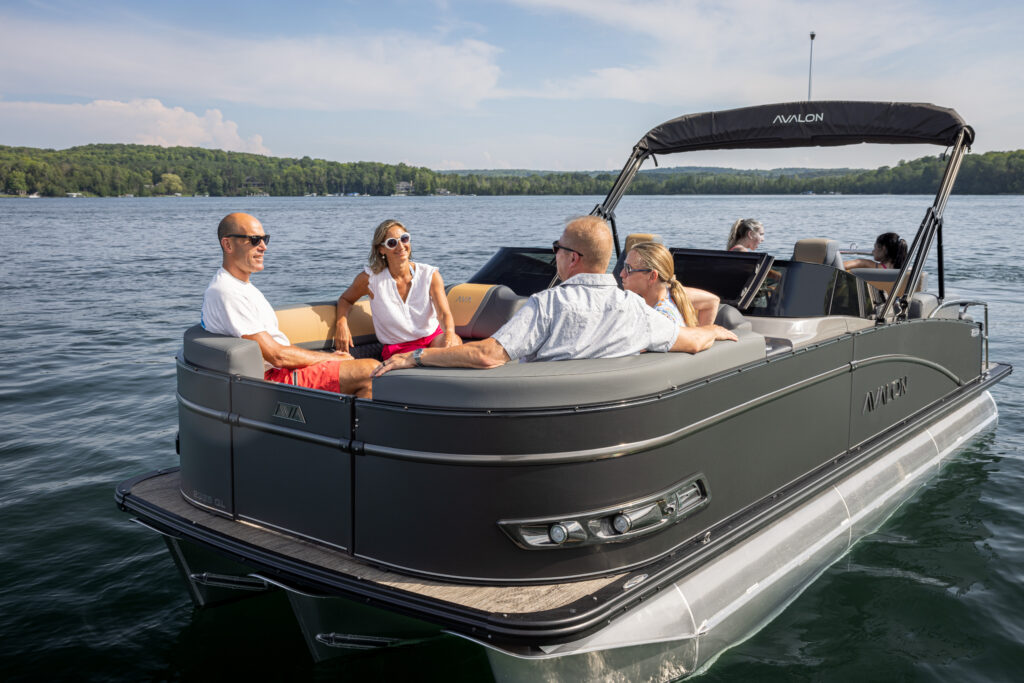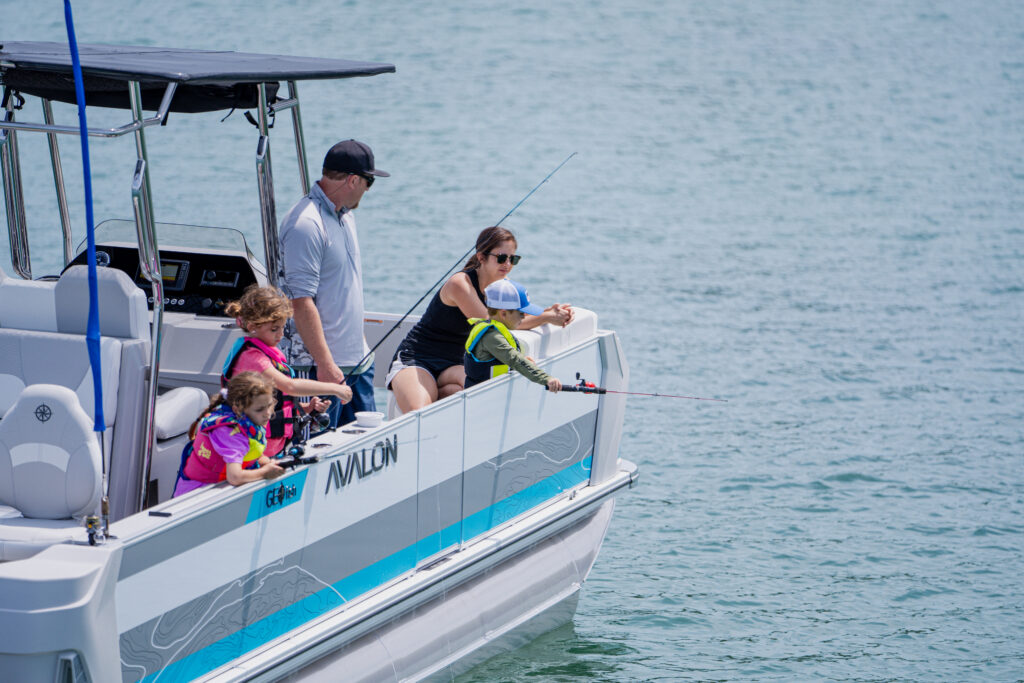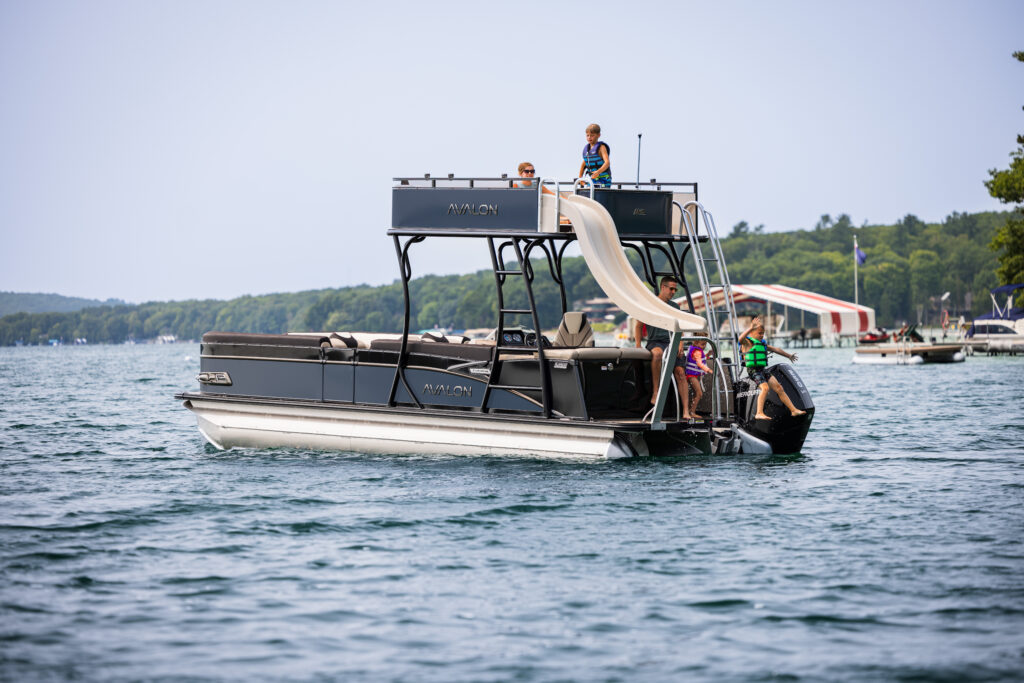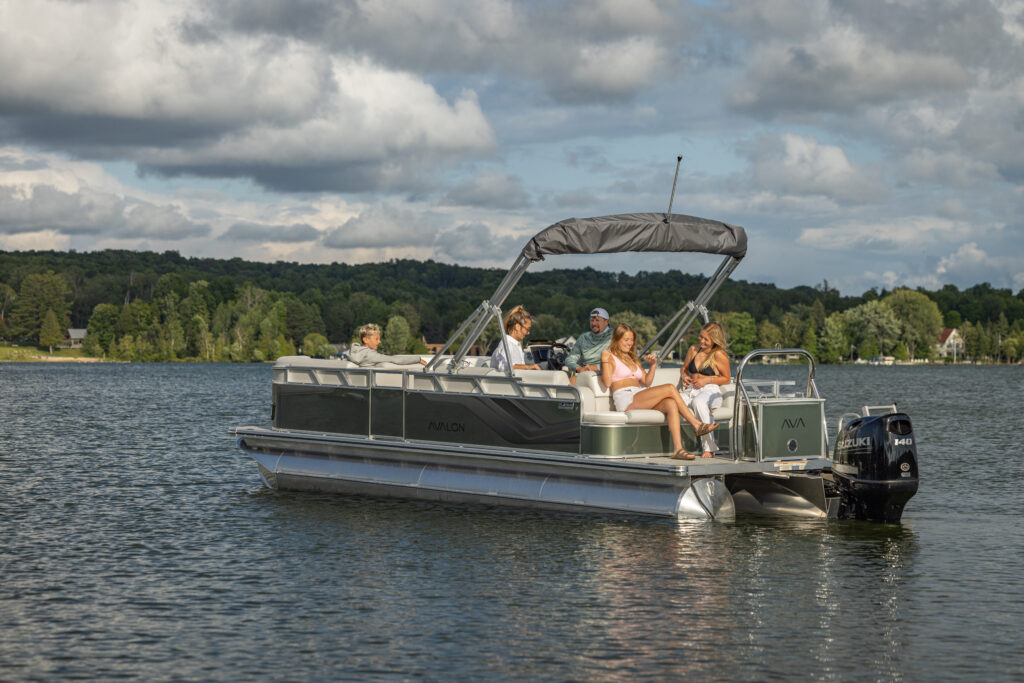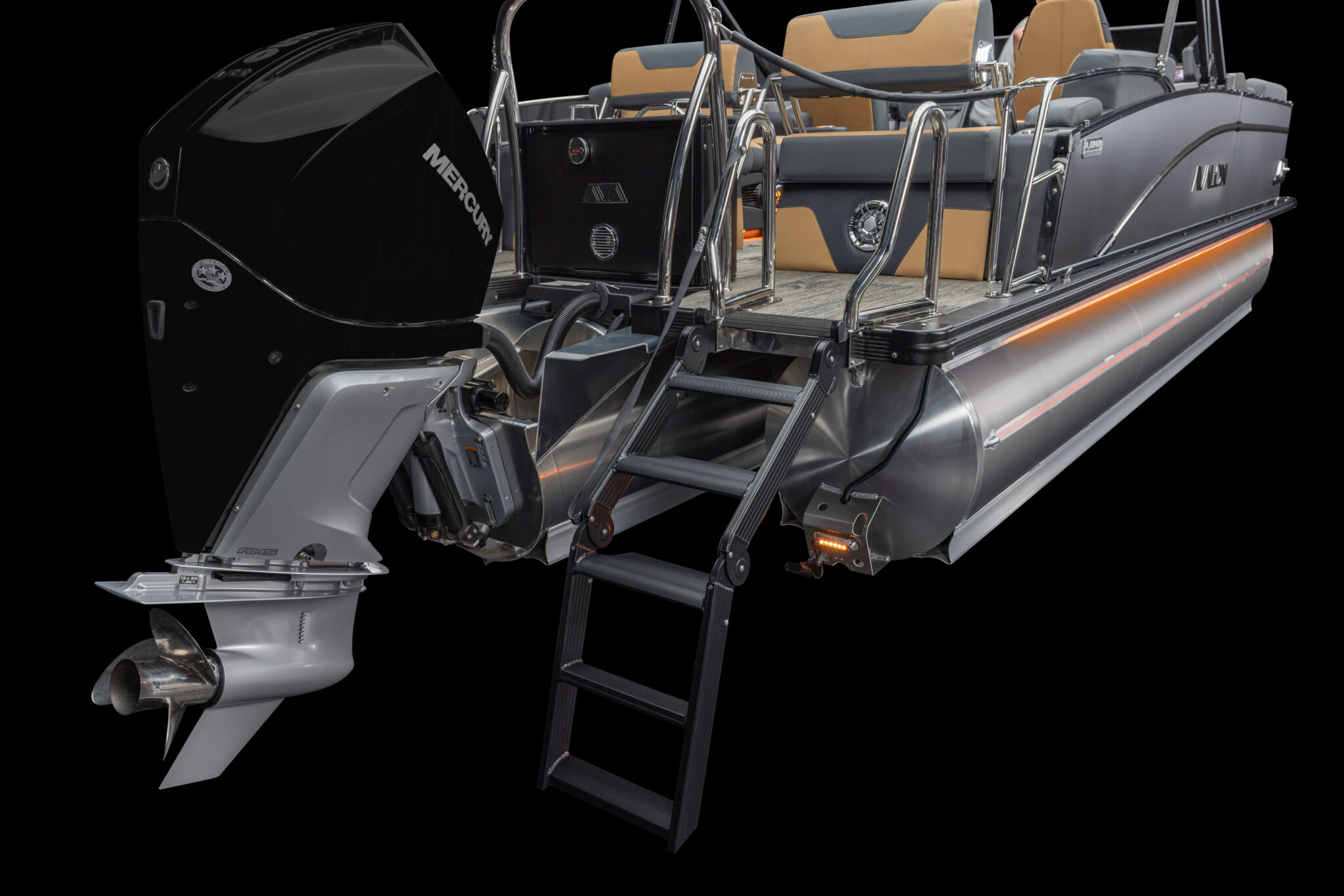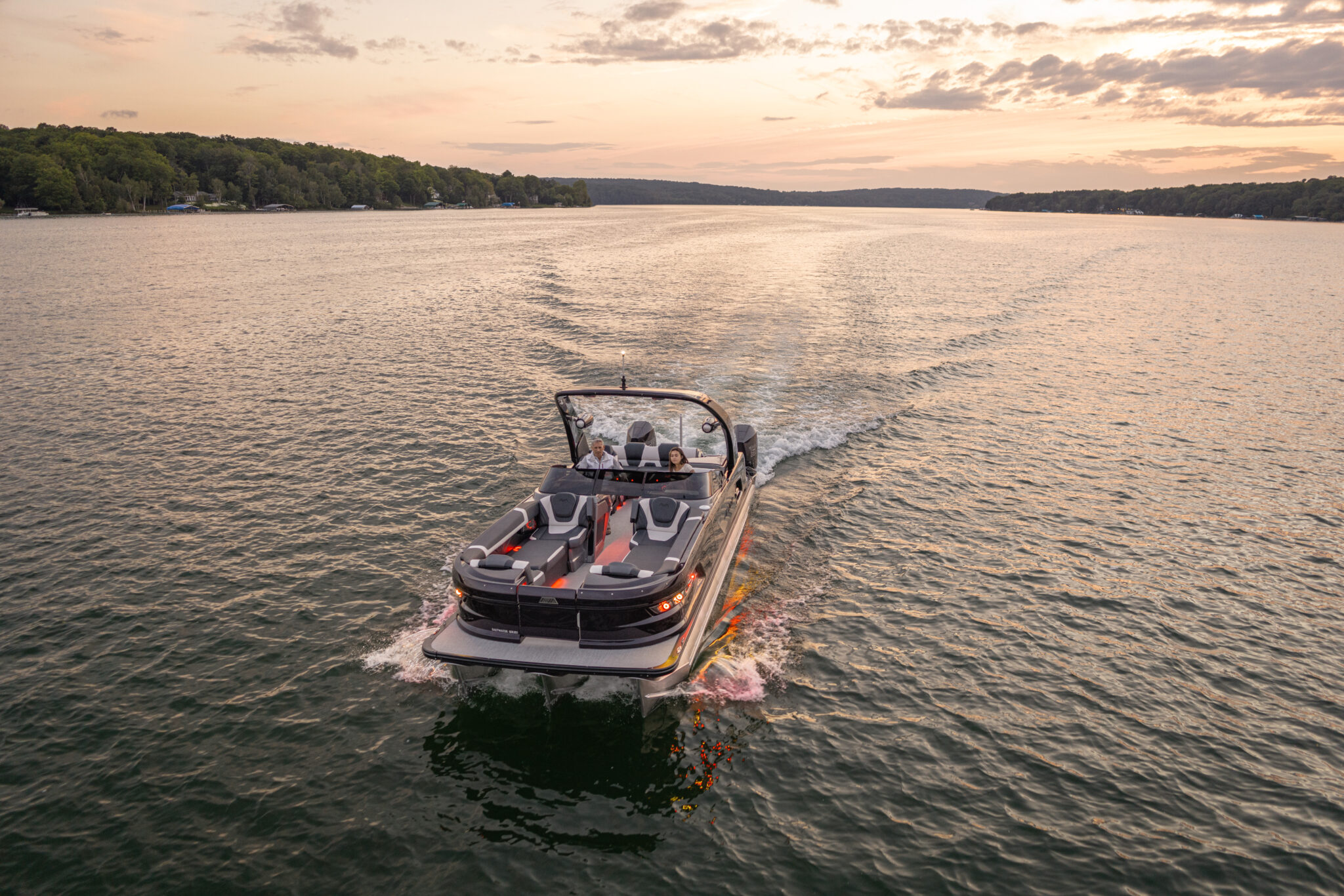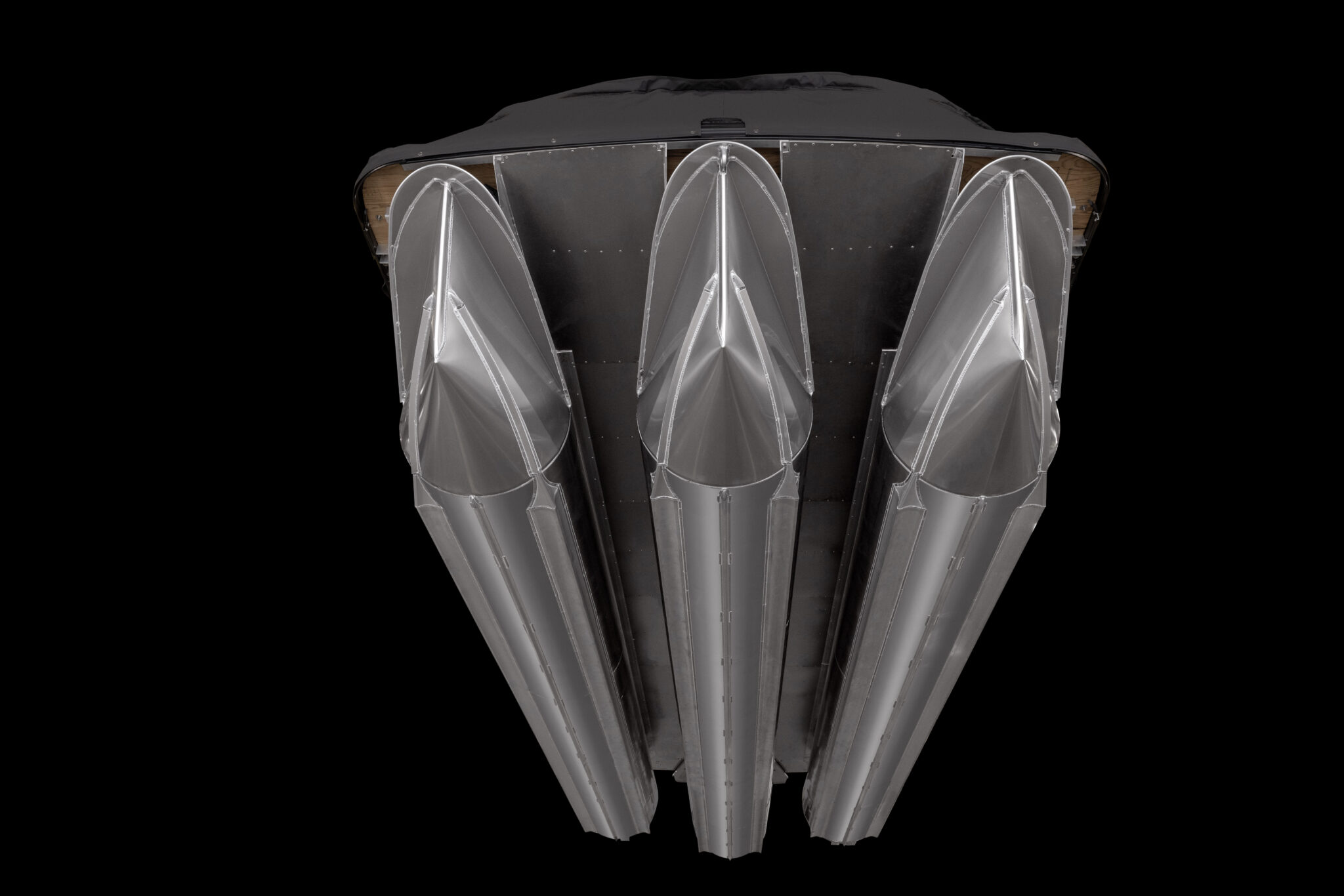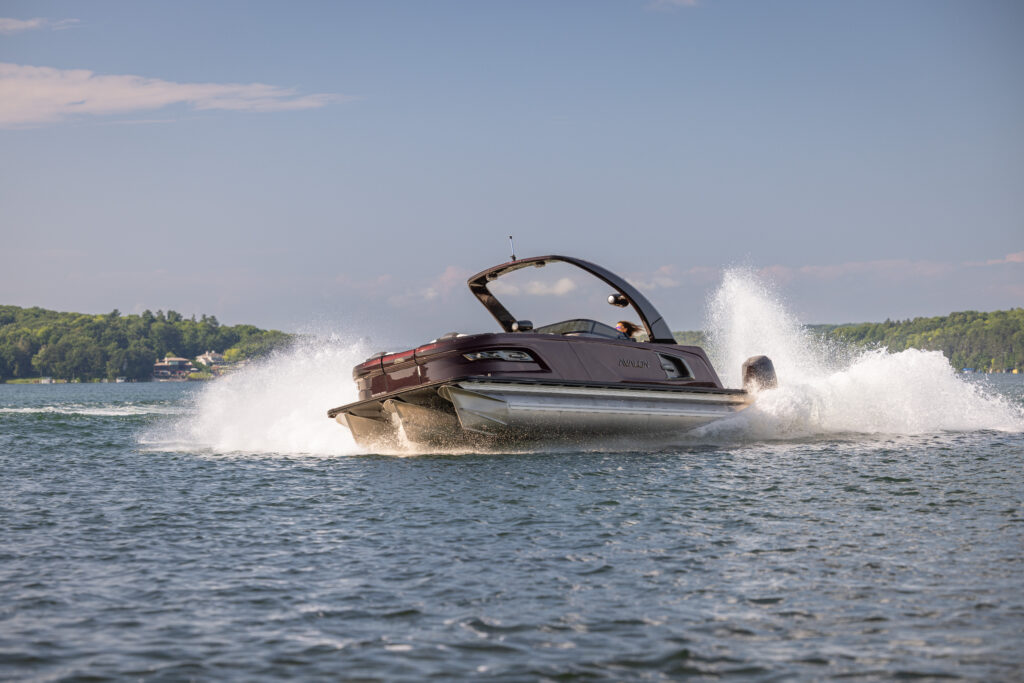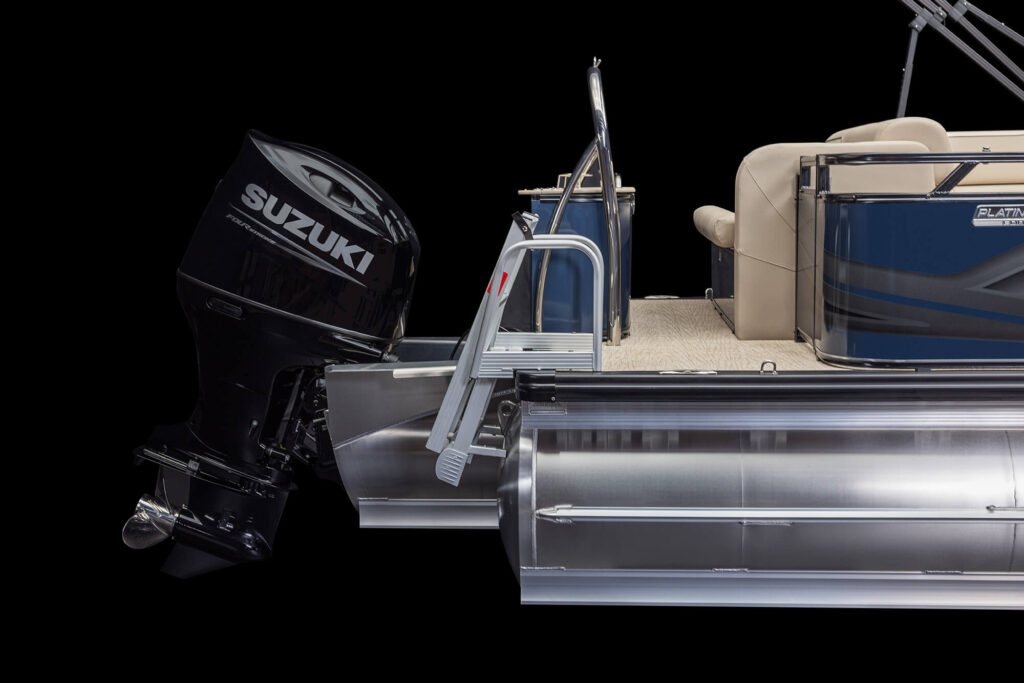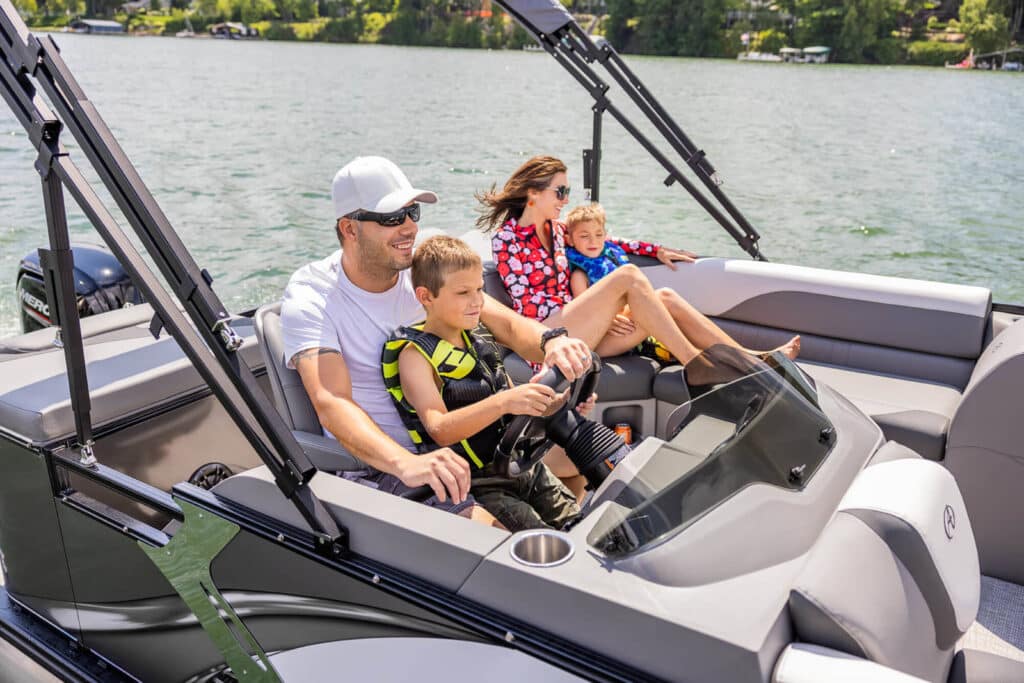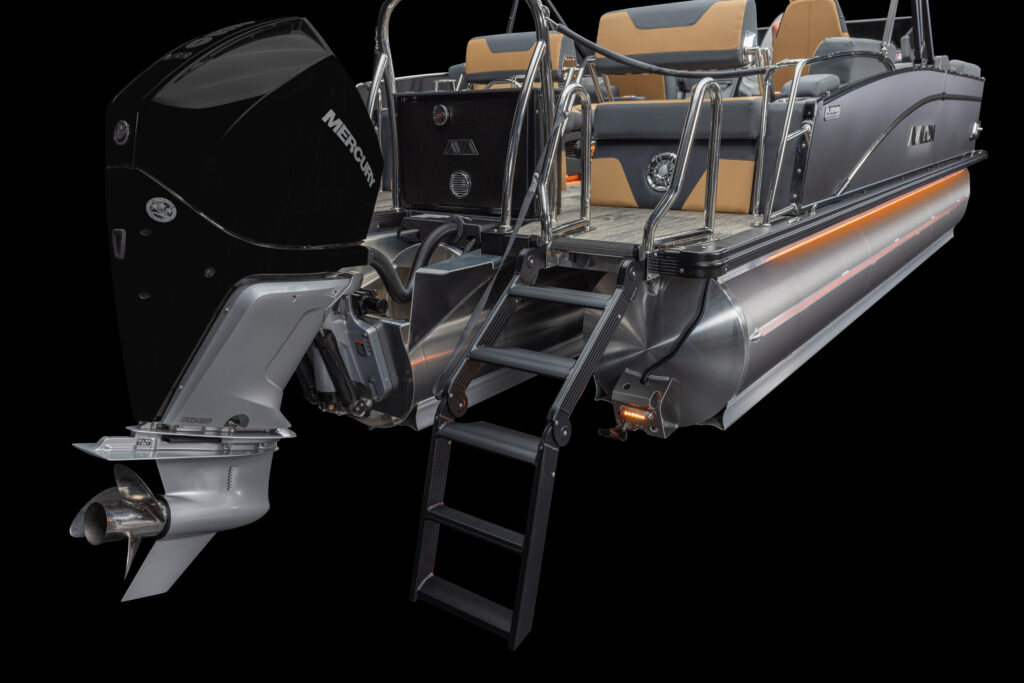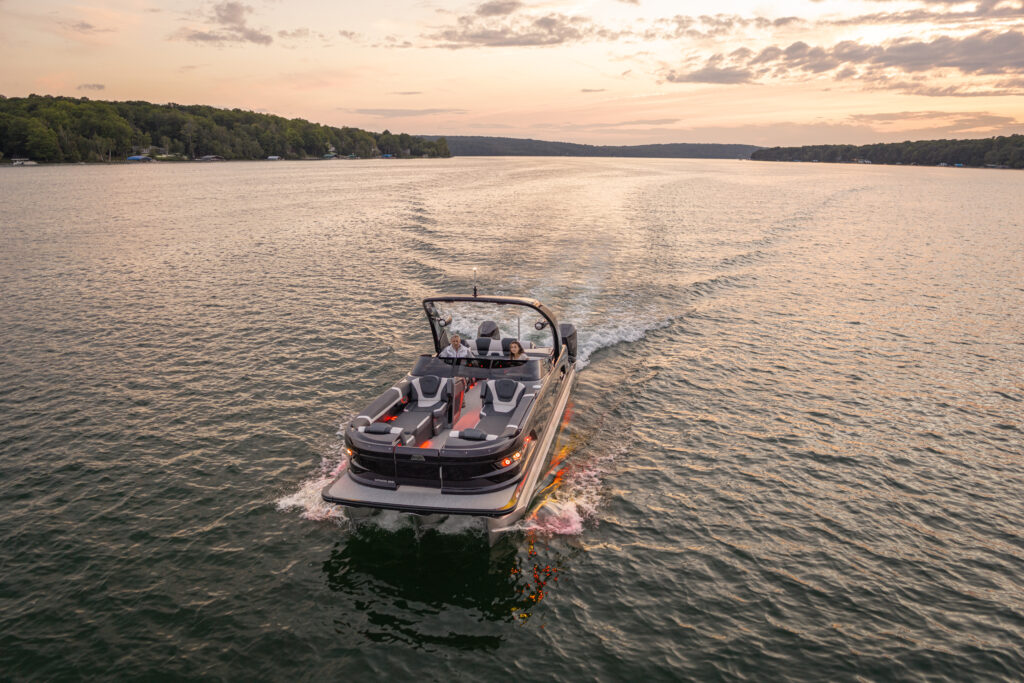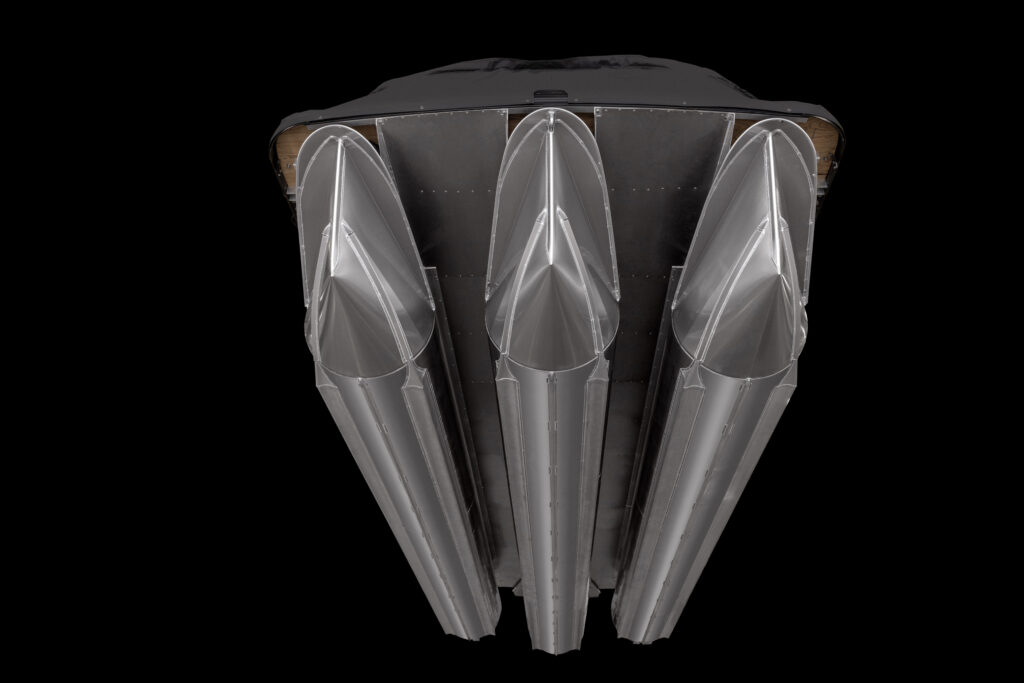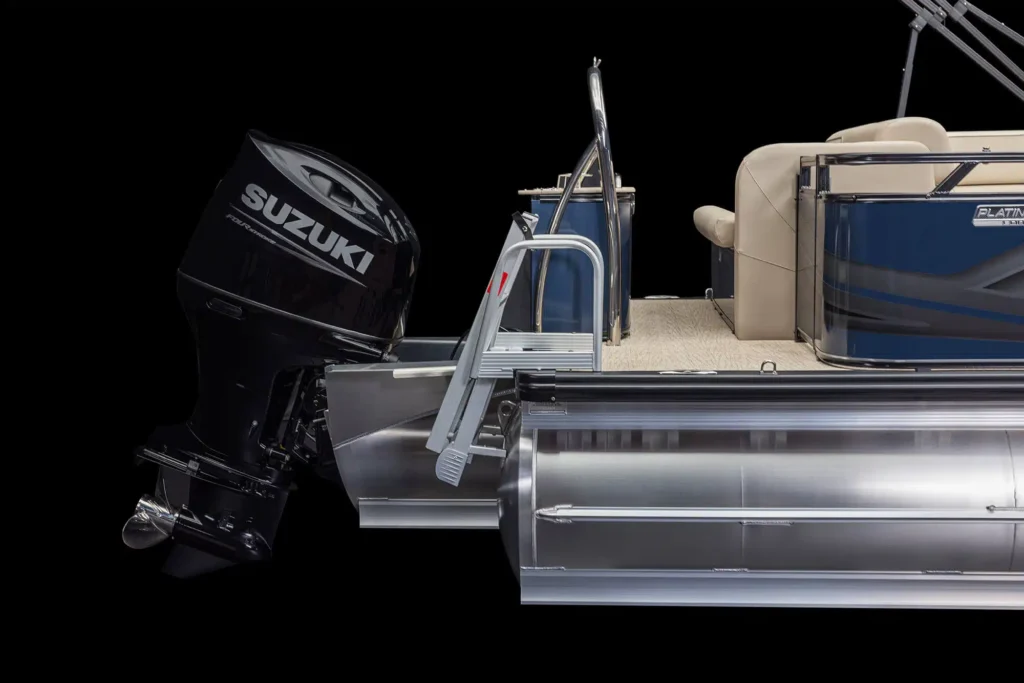Want a boat of your own, but not sure what pontoon boat safety equipment you’ll need? You’ve come to the right place.
This guide provides all the information and best practices you need about pontoon boat safety equipment to keep you and your family safe. Explore this guide to create your own checklist and ensure you are prepared and have all the required equipment for your next boating trip.
Required Pontoon Boat Safety Equipment
While experts may recommend various pieces of equipment, pontoon boat regulations make some equipment non-negotiable. So, when you’re making your pontoon boat checklist for what you need to bring aboard, you could actually be in trouble with the law if an officer discovers you don’t have this equipment.
So, before you ride off into the sunset on your dream boat, check out the following required equipment to meet pontoon boat safety rules.
- Fire Extinguisher. Whether to stop a fire that’s broken out or sparks from your electrical system causes flames, you legally need a fire extinguisher on deck. Ensure you have a marine extinguisher designed to meet pontoon boat regulations and regularly check to make sure it’s not expired.
- Noise Signaling Device. In case of an emergency, when you need to get another driver’s attention, you need to have a noise device that both alerts them and gives them a sense of where your vessel is. This can be any sort of noise-making equipment like a whistle or horn.
- Visual Signs of Distress. Similar to the noise-making equipment, this is ideal for alerting authorities at a longer distance. This includes flares, smoke signals, distress lights, or flags.
- Proper Navigation Lighting. Most vessels have built-in navigation lights. However, as part of your pontoon boat checklist, you should ensure they’re working correctly, so you can signal to other vessels where you are.
- Downed Skier Flag. Rather than alerting drivers that your pontoon boat is in distress, this announces explicitly that someone is down in the water. This tells other drivers to slow down while the person is brought safely aboard.
- Marine Sanitation Devices for Toilets. If your vessel doesn’t have a toilet, you don’t need to worry about this. If your pontoon boat does have a toilet, then you will require one of the 3 types of devices for treating the sewage from your toilet. For vessels under 65 ft in length, type I flow through device is the most popular choice.
- Throwable Device. Everyone aboard your pontoon boat should have a life jacket on. However, if someone goes overboard without a floatation device, you need to have an approved throwable device on hand to keep them from drowning while you bring them back to deck.
- Flotation Devices for Every Person Aboard. Although these vessels are incredibly safe, pontoon safety requirements include having a PFD (personal flotation device) for every person on deck. Think of this like a seatbelt. While you most likely won’t be in a severe car accident when you get in a vehicle, you still always want to wear your seatbelt because it’s safe and required by law. So, while on a boat, while accidents are unlikely, you need to have a PFD for everyone
A Guide to Flotation Devices
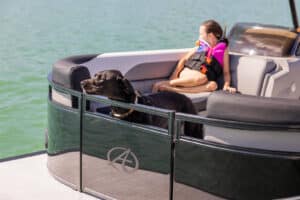
While accidents with these vessels are rare because pontoon boats are so safe, accidents and drowning still happen. According to the CDC, 86% of those who died drowning in boating accidents didn’t have any sort of flotation device on. This is why they’re part of pontoon safety requirements — just one life jacket can be the difference between a forgettable accident and tragedy.
As mentioned above, pontoon boat regulations require that everyone on a vessel has a personal flotation device that they wear throughout the ride. PFDs should be Coast Guard-approved. This ensures the flotation device will work for keeping someone above the water.
Each person needs an adequately sized flotation device. This means it should fit snugly like a glove. It should also not be too large so that it simply comes off the person once they’re in the water. If you can’t tighten a PFD on a person to the point that it slips above the nose when pulled by the shoulder, the person requires a smaller size.
Optional Pontoon Boat Safety Equipment
Although these aren’t part of the federal pontoon boat safety requirements, these items are highly recommended to make your trip easy and smooth on the water.
- Water-Proof Flashlight. If anything goes wrong at night and your lights on the boat aren’t working, you’ll be happy to have a flashlight.
- First Aid Kit. Don’t let a minor injury stop a fun day on the water. Keep at least a minimal first aid kit that includes emergency items like bandages.
- Line and Anchor. If you decide to stop and hang out in place, you’ll need an anchor.
- Secondary Propulsion. When something goes wrong, it’s nice to know there’s a way to move your pontoon boat beyond the primary motor. Having a trolling motor or even an oar can help you rest easy.
- Repairs Kit Battery Charger. Don’t let a dead battery or minor problem stand between you and getting back home safely. With the basic tools, parts and a battery charger aboard, you can handle minor issues and take care of repairs later.
State and Local Pontoon Boat Regulations
While federal laws affect all operators across the country, state and local pontoon boat rules can also impact your safety requirements. These rules can differ drastically from one place to another. So, before you power up the engine, look into the local laws of where you’ll be on the water and keep an eye out for these common restrictions.
Operator Age
State laws vary wildly on pontoon boat safety rules and age to operate. Some states don’t have any age restrictions, while others require supervision for teenagers. There’s no standard rule, so you must check with local pontoon boat rules before handing over the wheel to even a 16-year-old as they may require supervision by someone 18 or older.
Operating a Vessel Under the Influence
According to federal law, it’s illegal to operate on the water while under the influence. However, depending on the state and local pontoon boat safety rules, the consequences may be more or less severe if you get caught under the influence while operating your vehicle.
License and Registration
To operate your vessel, you need proper licensing and registration, and you must display it in accordance with local laws. Additionally, you may need to undergo additional education requirements if you take your boat out of state. Wherever you take your boat, ensure that it is legal to operate based on local regulations.
Additional Pontoon Boat Safety Equipment
Depending on where you’re driving, you may need to add additional equipment to your pontoon boat checklist. For example, while these vessels hardly ever have a water issue, some states still require that a bailing device is onboard.
To be on the safe side, always check local pontoon safety requirements and adjust your checklist accordingly.
Navigation Laws for Pontoon Safety Requirements
In addition to federal pontoon boat regulations on required equipment, there are also rules about how you drive. Here are a few that every operator must know before going out on the water.
Engine Cut-Off
As of April 1, 2021, a new law went into effect that requires operators to attach their emergency engine cut-off device to their PFD or clothing. This way, if there’s a sudden turn with too much torque, throwing the operator overboard, the operator can safely recover and return to the boat.
Proper Speeds and Lookouts
According to the law, you must always be alert with a proper lookout. This means you should always be aware of what’s going on around your boat. This allows you to react quickly to any potential issues to avoid more significant problems. Additionally, you should be aware of the proper speeds in your area to ensure you’re following the rules.
Buying with Pontoon Boat Safety in Mind
A critical part of pontoon boat safety rules that you can’t control is how the vessel is manufactured. Manufacturers need to meet specific safety requirements when building. While you can’t be part of that process, you can shop from reliable, trustworthy vendors that prioritize safety and meet minimum safety requirements.
If you’re looking for the safest pontoon boats on the market, Avalon has what you’re looking for. Check out our wide range of pontoon boats to see how you can ensure pontoon boat safety for your family and friends.
Shop for Your Dream Pontoon Boat from Avalon
Now that you are aware of all the safety requirements, you’re ready to get out on the water with a beautiful, high-quality vessel of your own. For the finest luxury pontoon boats on the market, shop Avalon. You’ll find well-made, safe vessels at various prices to fit your budget. Find a dealer near you today.

